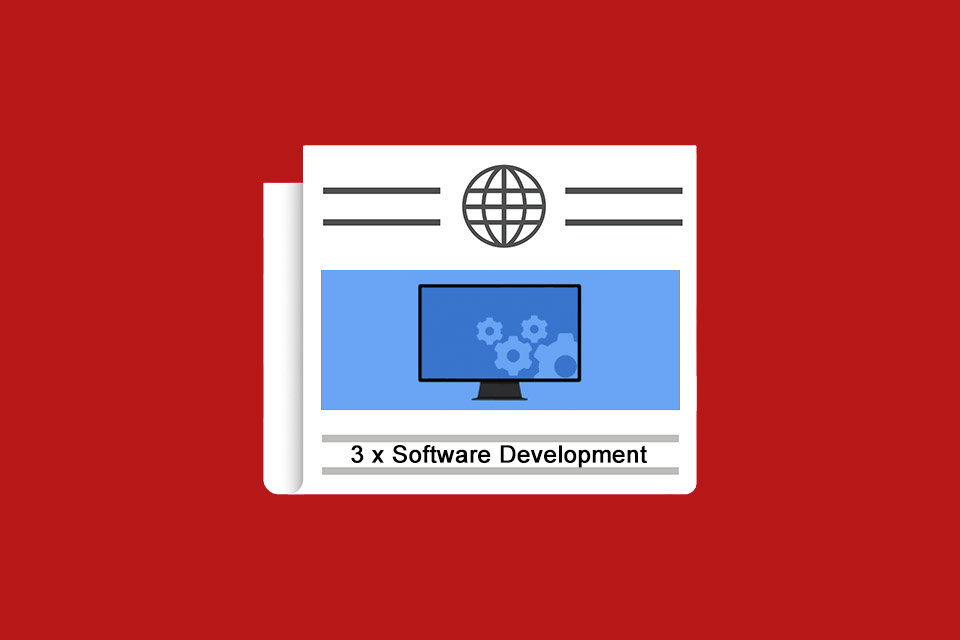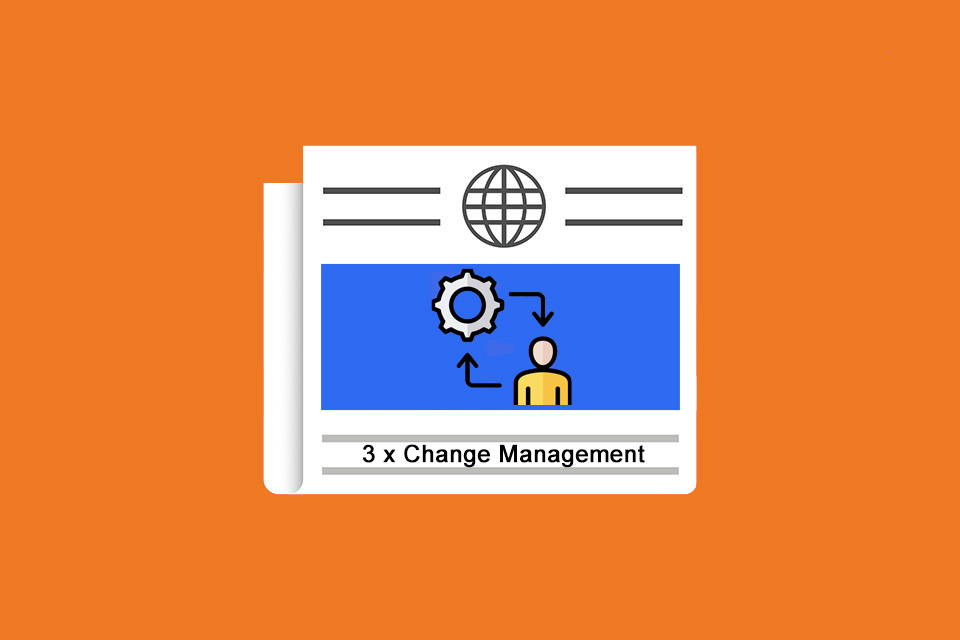Three questions about digital transformation
A conversation with Sandra Brauer about digital transformation
As a change facilitator, Sandra Brauer specialises in supporting individuals and teams in digital transformation processes. With her comprehensive range of services as a systemic consultant, coach and stumbling block trainer, she offers customised solutions to strengthen digital and social skills.
Her work aims to guide leaders and organisations through change by promoting emotional stability and digital resilience. Sandra Brauer is therefore the perfect partner for the following three questions:
How can I get people excited about digital change?
Sandra Brauer: It is often not just a lack of enthusiasm, but also resistance that is experienced in the context of digital transformation. Developing a way of dealing with this can sometimes be a rocky road. My recommendation would be to move from resistance to acceptance to enthusiasm.
There is often a good reason behind every resistance. On the one hand, this could be anchored in the personality or often arise from the experiences of those involved in previous projects.
According to the Riemann-Thomann Model¹, there are personalities orientated towards duration and stability or towards change and transformation. Resistance or perhaps a lack of enthusiasm for new things could therefore be rooted in the personality type. For me, fighting against this basic orientation of a person would be the wrong approach and would go against the needs of those involved. For me, this is also the case with resistance based on the person’s previous experience. Perhaps the expectations of previous IT projects were not met, the commitment in the past was not rewarded, the undertakings were very stressful or even failed. For me, resistance and a lack of enthusiasm would therefore be understandable reactions. I would therefore always advocate acceptance of all emotions that arise. Taking a change of perspective and wanting to recognise the good intentions of the resisters could help here. This would also mean that, as a facilitator or organiser of change, I need to be close to those involved in order to recognise emerging emotions in the first place. I should therefore regularly seek out conversations and practice listening and empathetic behaviour.
The second step is to focus on the benefits of digitalisation and the resulting opportunities for those involved. A key aspect is communicating how the digital tools and processes used in the future can simplify or generally improve everyday working life. It is important to create an open and supportive culture in which learning and experimentation are encouraged. In addition, strengthening team cohesion can increase motivation and the stamina often required in IT projects.
It can be challenging if learning and development have not been on the employees’ agenda for years. Managers in particular should always act as role models, expand their own digital skills, continuously invest in the further training and development of their teams, show and pass on curiosity and interest in technological trends and convey confidence when looking to the future.
Above all, it is about showing people how they can actively shape digital change instead of just experiencing or even enduring it.
Which skills are particularly relevant for our digital working world of the future?
Sandra Brauer: Particularly in view of the speed of technological development, I see the willingness to engage in lifelong learning and the desire to develop further as the most important skills. Particularly with regard to the concern that is repeatedly cited in studies that one’s own job will disappear at some point, it takes personal responsibility and commitment to want to help shape one’s own future.
And that’s not all. Our working world is changing rapidly as digitalisation progresses. Working without boundaries – independent of time and place – requires a good ability to set boundaries and, as a basis for this, mindfulness and self-reflection so as not to lose sight of one’s own limits and needs.
I also see competences on a social level, such as the ability to collaborate and communicate in virtual teams. Critical thinking is certainly also helpful in order to be able to evaluate information and make decisions and, for example, not to follow every digitalisation trend.
The digital working world of the future and the corresponding transformation also require adaptability, i.e. agility with regard to constantly changing conditions and external requirements. The ability to navigate change and demonstrate resilience in times of change will be important. Practising flexibility, swimming with the waves and not against the current, could be a fitting image here.
How do I stay healthy in digital times?
Sandra Brauer: When I ask this question, I’m primarily thinking about our mental wellbeing. Of course, there are other influencing factors such as sport, nutrition and other physical parameters that should also be taken into account. We know that our physical well-being influences our mental well-being and vice versa.
I pay particular attention to two aspects of mental health:
1. digital mindfulness
Higher, faster, further – digital structural change is changing our working world so rapidly and is also having an impact on our private lives. In my opinion, it is becoming increasingly important to develop self-awareness and mindfulness, perhaps even digital mindfulness.
But what is our goal here? What are we striving for? One of my mantras is “Let’s shape the (digital) working world of the future in such a way that it strengthens us humans more than it weakens us”. It is based on the basic attitude of Frithjof Bergmann’s New Work approach. For me, the subtitle here would be: “How can I organise my life in the happiest and healthiest way possible – both professionally and privately?”
Once I have defined a goal for myself, I can now pause and question myself again and again:
- How am I really feeling right now?
- Do I really want to do what I’m doing right now?
Do I want to deal with the emails at the weekend? Is it good for me to communicate with colleagues, superiors or customers on my personal mobile phone? Should I really say “yes” to participating in the AI project?
If “yes”, then keep it up – if no, what can be changed? Clarifying these questions again and again with regard to the work in the team can help to not lose sight of the inner orientation, the inner compass with regard to values, i.e. motives, goals and needs.
For me, the retrospective² from Scrum is a wonderful method that strengthens team mindfulness. Pressing the stop button together as a team and addressing the following questions:
- Can we work so well together or
- do we need/should we change something?
This can have a positive impact on digital-social skills such as self-reflection, agility and team cohesion. Strengthening team cohesion (see answer to question 1) also has a positive effect on our resilience in times of change and crisis and makes us digitally resilient.
2. digital breaks
People often talk about “digital detox”. I personally try to avoid this, as I don’t want to perceive digitalisation as poison. For me, it is more of an opportunity that makes our lives easier at best.
To maintain mental health, it is essential to practise digital mindfulness and consciously take breaks from digital devices and digital interaction. In this way, we can avoid sensory overload and potentially stress.
Mindfulness exercises, progressive muscle relaxation, meditation and sport as well as music can help to reduce stress and also improve concentration. Prioritising adequate sleep and developing routines that include offline time also support a healthy mental balance.
Notes (partly in German):
[1] Riemann-Thomann Model
[2] Different types of retrospectives
Here you can find a podcast by Sandra Brauer and Dierk Soellner on the art of saying no.
Here Sandra Brauer describes how you can simply switch off digital stress.
And here Sandra Liane Braun lists 19 questions for self-reflection on the stress factor of digitalisation.
Would you like some support in the digital transformation? Then simply get in touch with Sandra Brauer.
Sandra Brauer has published articles on the t2informatik Blog about dealing with change and systemic thinking and acting in the workplace, among other things.
If you like the article or would like to discuss it, please feel free to share it in your network.
There are more posts from the t2informatik Blog series “Three questions …”:

Michael Schenkel
Head of Marketing, t2informatik GmbH
Michael Schenkel has a heart for marketing – so it is fitting that he is responsible for marketing at t2informatik. He enjoys blogging, likes changes of perspective and tries to provide useful information here on the blog at a time when there is a lot of talk about people’s declining attention spans. For example, the new series “Three questions …”.



